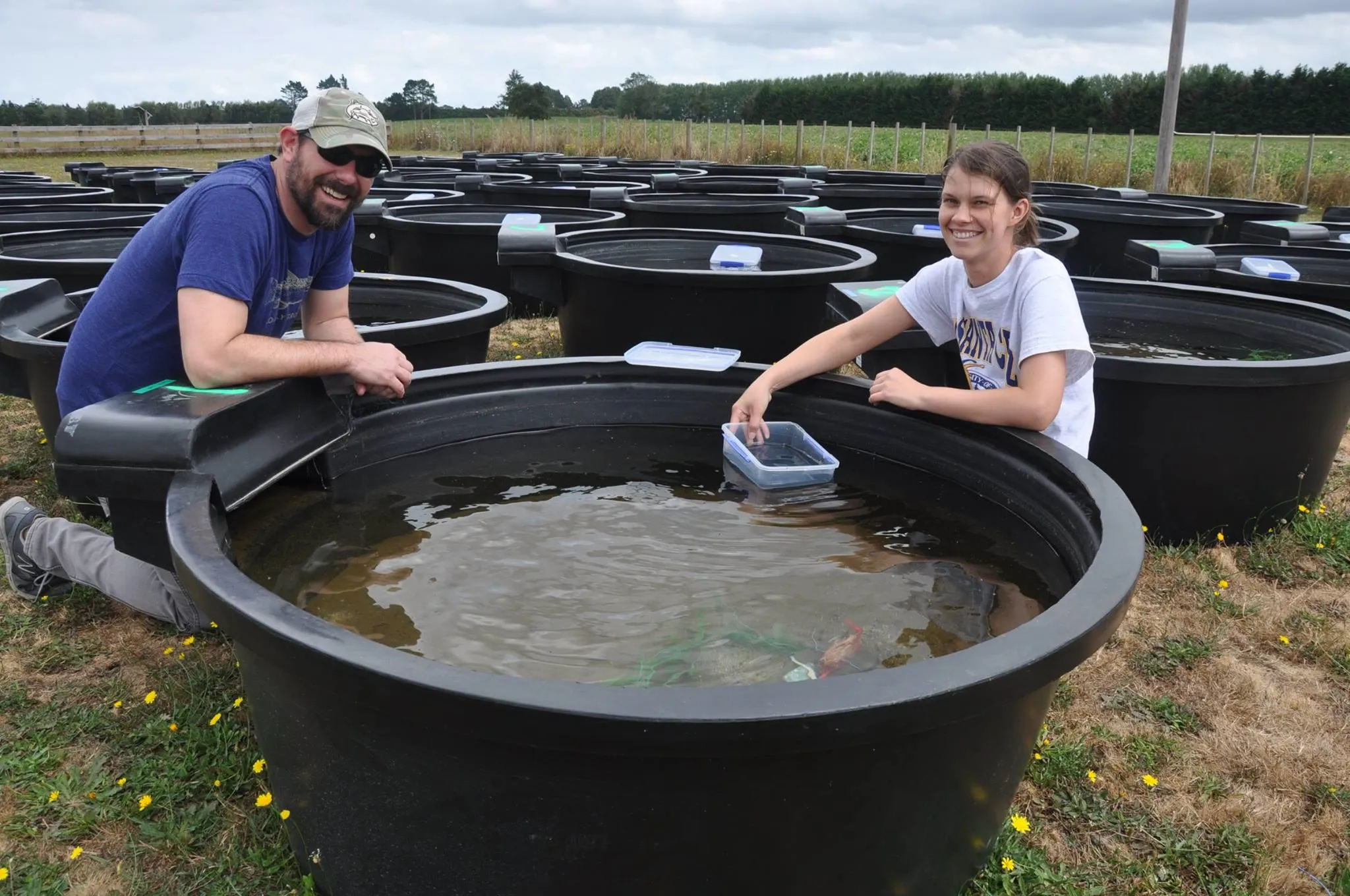29 July 2025
Climate History Shapes How Fish Size Affects Ecosystems, Study Finds
In warmer environments, fish, like many cold blooded creatures, don’t grow as large – but the ecological implications are greater than we imagined.

A new study has revealed the water temperatures fish experience over their lives can play as an important a role in ecosystem function as their body size does – a trait which is also influenced by temperature.
The study untangles the two, and offers a more nuanced view of how climate change may reshape aquatic ecosystems.
“Our results show that warming-induced changes in body size don’t act in isolation,” said Dr. Moffett. “Thermal history shapes how those size changes play out in ecosystems.”
The findings challenge models that predict ecological change based solely on body-size reduction, as body shape, behaviour and physiology may also change in a way that buffers the impact of body size.
“If we ignore the role of adaptation and thermal history, we may overestimate the ecological impacts of warming,” said Dr Moffett.
Published in Freshwater Science, the research team led by Dr. Emma Moffett from King’s College London conducted a large-scale experiment using mosquitofish, a globally invasive freshwater species.
The study compared fish from two New Zealand populations - one from a warm geothermal stream and another from a cooler ambient stream.
The goal was to test whether the ecological effects of body size reduction, a common response to warming, are consistent across populations with different thermal histories.
Experiments were set up in large tanks designed to mimic the natural habitat of the mosquito fish, with invertebrate prey also present, ranging in size from plankton up to small insects.

Each tank had the same overall weight of fish and the same sex ratio (2 females for every male) but tanks had either small or large fish, which in turn came from either the warmer or cooler habitat.
The results show that smaller fish generally had stronger effects on prey and ecosystem processes, but only in populations that originally came from the cooler environment.
Small fish from cooler-source populations consumed more prey than larger fish. However, in fish from the warmer-source populations, this effect was muted.
Fish from warmer environments showed reduced ecological differences between large and small individuals, suggesting that adaptation to heat may buffer ecosystems from the impacts of shrinking body size.
Greenhouse gas emissions varied, with small-bodied fish having increased nitrous oxide emissions, but this effect was again moderated by the fish’s thermal background.
Dr Moffet said: “The study underscores the importance of considering both physiological traits and evolutionary history when forecasting the future of freshwater ecosystems under climate change.”
The study also involved researchers from the University of Auckland and the University of California, Santa Cruz.
Read the paper:
Thermal history mediates the ecological role of body size in a freshwater fish

